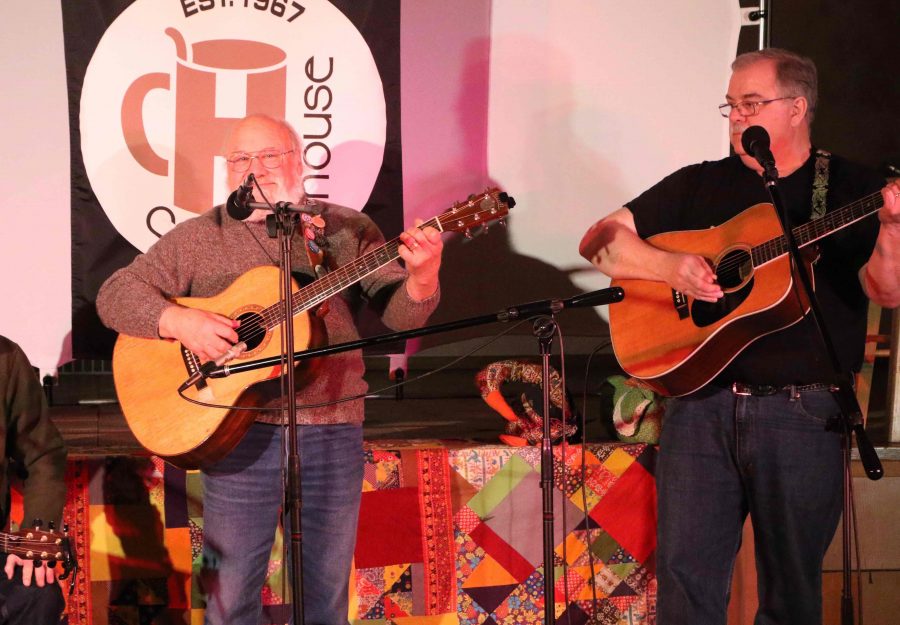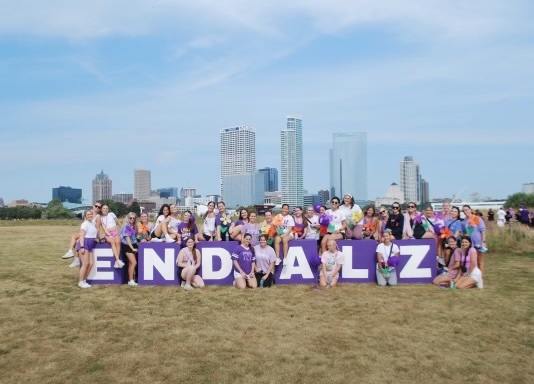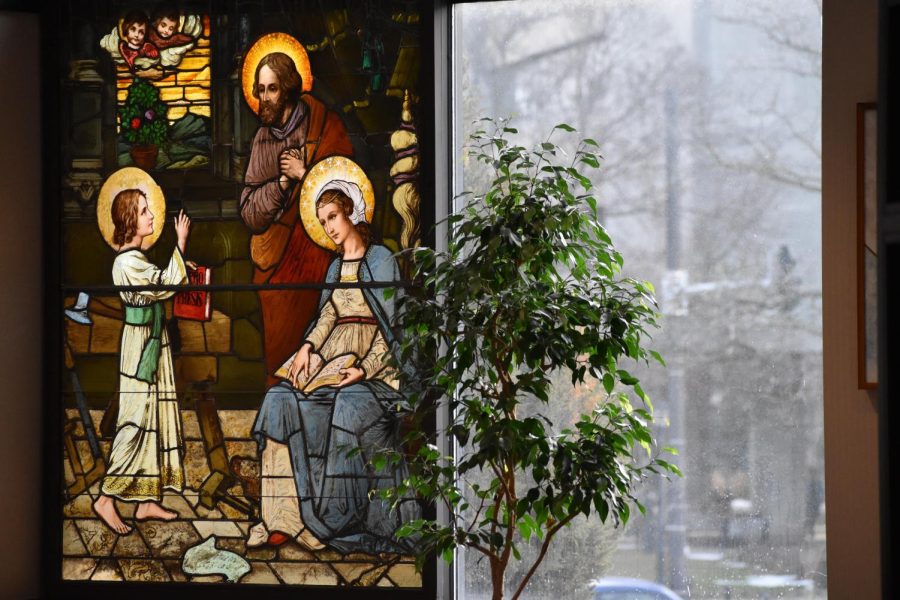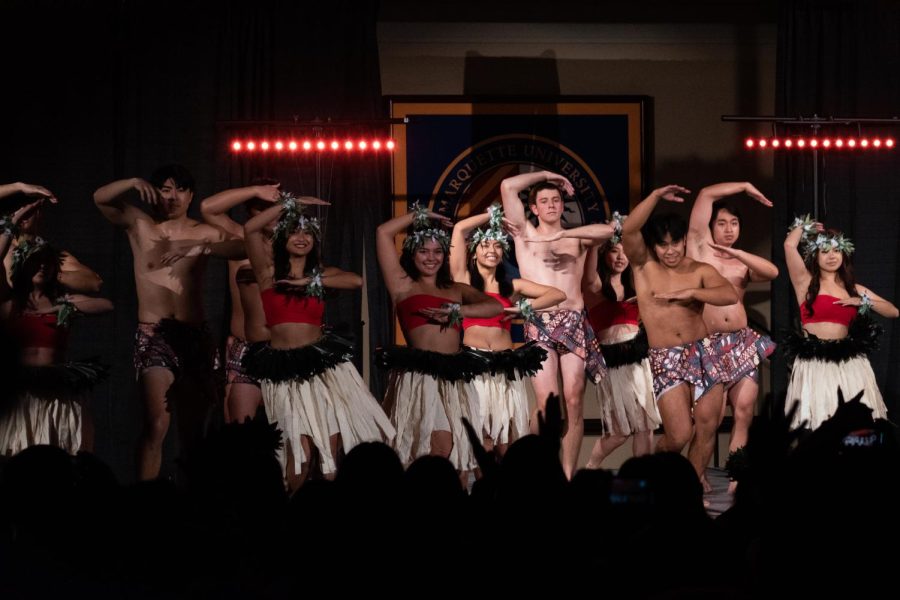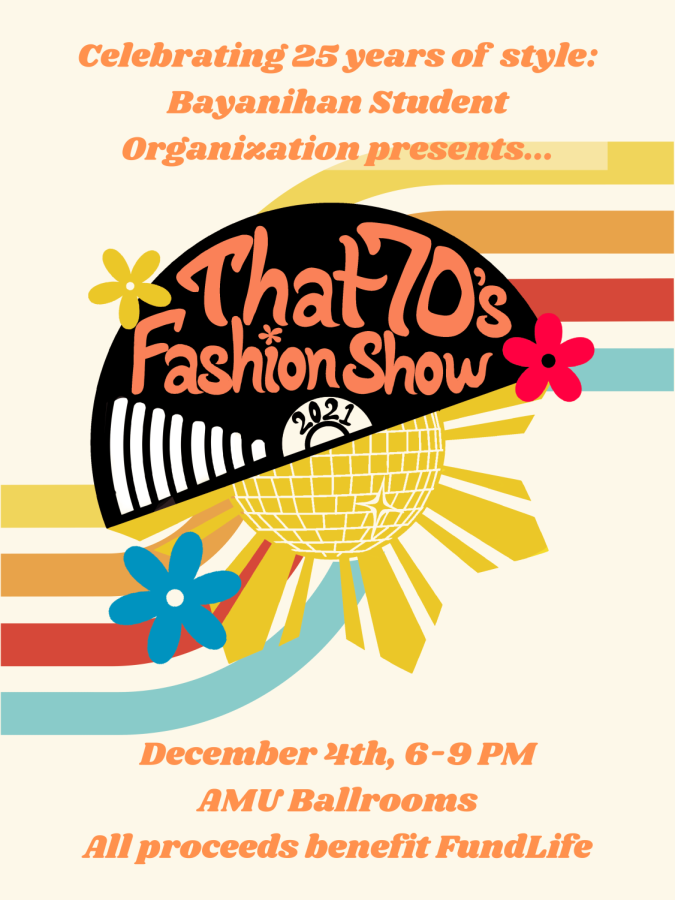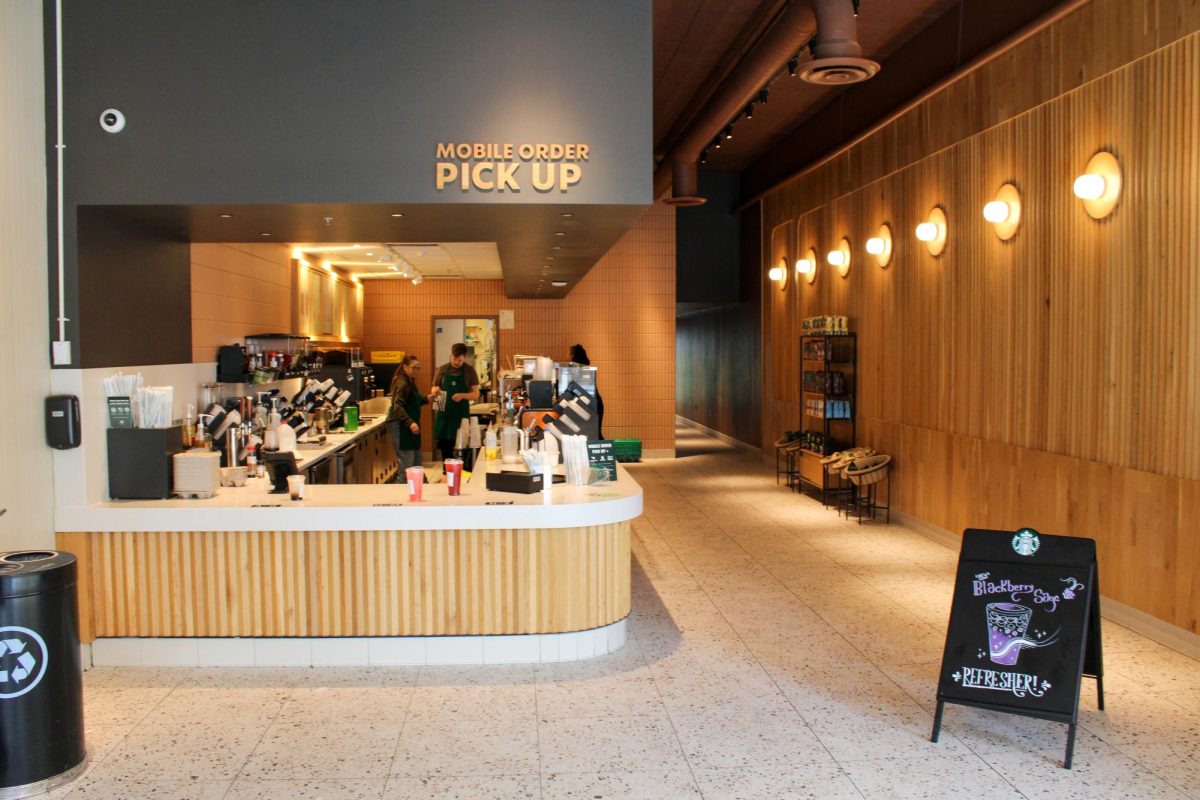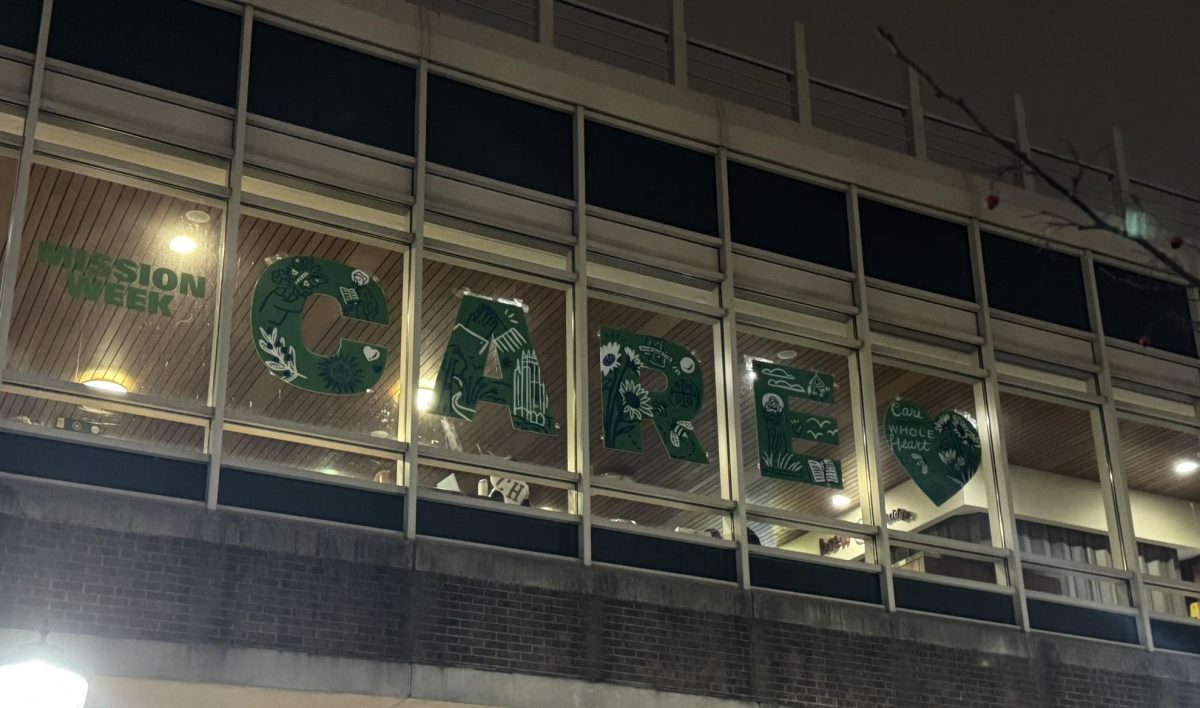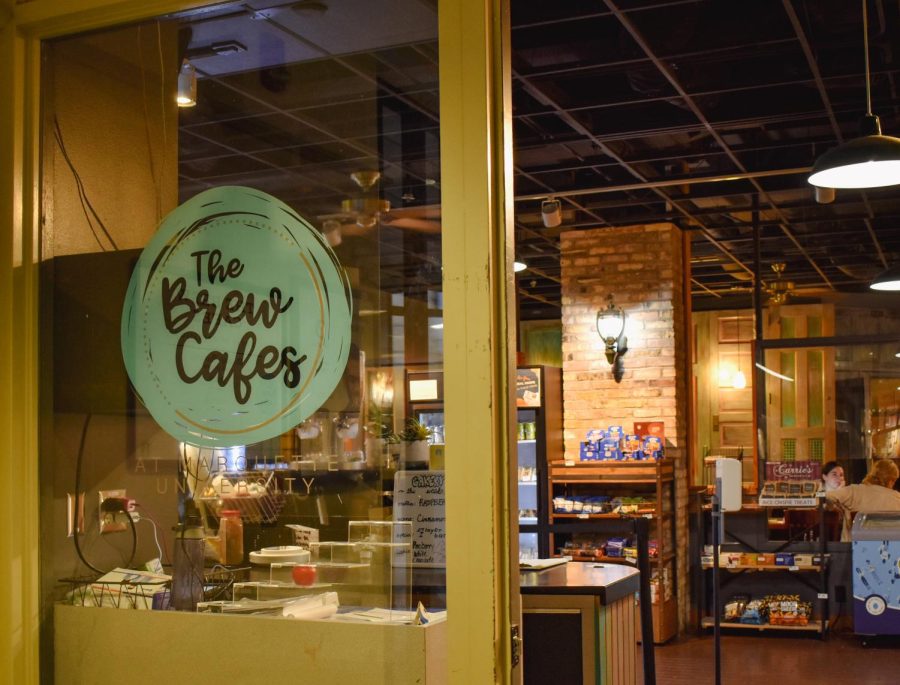Across the street from Mashuda Hall, a neon sign flashes in the dark. Hanging at eye level is the word open, glaring against the ominous backdrop of Redeemer Lutheran Church.
It is Saturday night and The Coffee House is open for business. Instead of brewing up cups of artisan-roasted beans and freshly foamed lattes, visitors pay five dollars at the door for hot drinks from a stainless-steel serving container. The focus is on live music — not coffee — and has been for the past 50 years.
At 18 years old, Sandy Weisto was hired as a manager at The Coffee House. Over three decades, she is still involved — this time as a director.
“It’s a good place to hear music,” Weisto said. “I made a lot of my best friends (here).”
The atmosphere draws singer-songwriters and folk artists from all over southeastern Wisconsin. Young and old, experienced and inexperienced, the community welcomes anyone with an open ear and appreciation for live music.
A performer herself, Weisto said the small, concert-oriented venue is one of the most unique in Milwaukee.
“There’s a difference between (performing) somewhere where you’re just kind of background music and somewhere where people are paying attention,” Weisto said.
In the mid-1960s, when the venue was just getting started, events would take place Thursday through Sunday nights and feature more than music. Poetry slams, discussion groups and monthly jazz nights took place.
Marquette’s Lutheran Campus Ministry was part of the committee to launch the venue. They remained closely connected until the early 1980s, when the original committee disbanded. The Coffee House now operates under Redeemer Lutheran, though it has no religious ties.
What was once a place for youth to gather, perform and listen now sees a dwindling population of student visitors.
Weisto remembers a group of Marquette students who would visit frequently back in the ’80s, but there have been few student visitors since.
David Drake, a singer-songwriter who helps with promotions for the venue, is a regular who observes the sparse student population. Youth visitation is usually the result of word-of-mouth from an older musician who is a regular at The Coffee House.
“The audience in part are the Coffee House regulars who come and support whatever is being played. They’re music lovers,” Drake said. “The lines really blur out folk, acoustic … whatever you wanna call it these days.”
The organization has difficulties advertising on campus. The main problem is a lack of manpower, as the shrinking number of regulars don’t have time to hand out flyers during the day.
“It’s a volunteer-run organization, (so) sometimes it’s hard to get everything done,” Weisto said.
Before becoming a regular volunteer in 2016, John Higgins said The Coffee House made an impression on him because of its genuine charm.
“It’s such a wonderful place for people to gather, to share their feelings, music, poetry … (to) get up front and try their stuff,” Higgins said.
Notable performers are drawn to the space, such as Lil Rev, who authored several books for Hal Leonard on how to play ukulele. The late Larry Penn, revered by the folk community, recorded an album to benefit the Coffee House.
Charity also plays a big role in The Coffee House story. Living Activism concerts happen the second Sunday of every month, when a designated charity benefits from concert proceeds. Some shows, according to Weisto, have raised as much as $3,000.
When Drake needed emergency gall bladder surgery in 2003, The Coffee House put on a show to raise money for his medical bills. The three-hour show raised enough money to cover the cost.
The very nature of folk music, Drake said, encourages one to be an active member of the community.
“You can’t be a folk singer and not walk the talk,” Drake said. “I don’t think anyone in The Coffee House would give a damn what the brand of your religion is. That you care is important. In what fashion you care is irrelevant.”
Donations are strongly encouraged, but no attendee will be turned away if he or she cannot afford the suggested five dollars. The Coffee House will celebrate its 50th anniversary in May with a whirlwind of performances by over 20 artists in a nine-hour time span, with the suggested donation remaining the usual price for an average weekend concert.
Because The Coffee House relies so heavily on volunteers, regulars are a staple in the crowd. Higgins compares the atmosphere to a family.
“We all have a combined love for performance and music and sharing with other people because we know what it does for us, spiritually and emotionally,” Higgins said. “So if we share that with other people, it just becomes a beautiful thing.”
Drake recalls an episode when one performer broke a guitar string on stage, passed the instrument to an audience member for repairs, and continued singing a cappella to kill stage time.
“It really is the place to get started,” Drake said. “(This) is probably the safest, friendliest environment … the crowd is sitting there going, ‘You can do it, you can do it!’”

